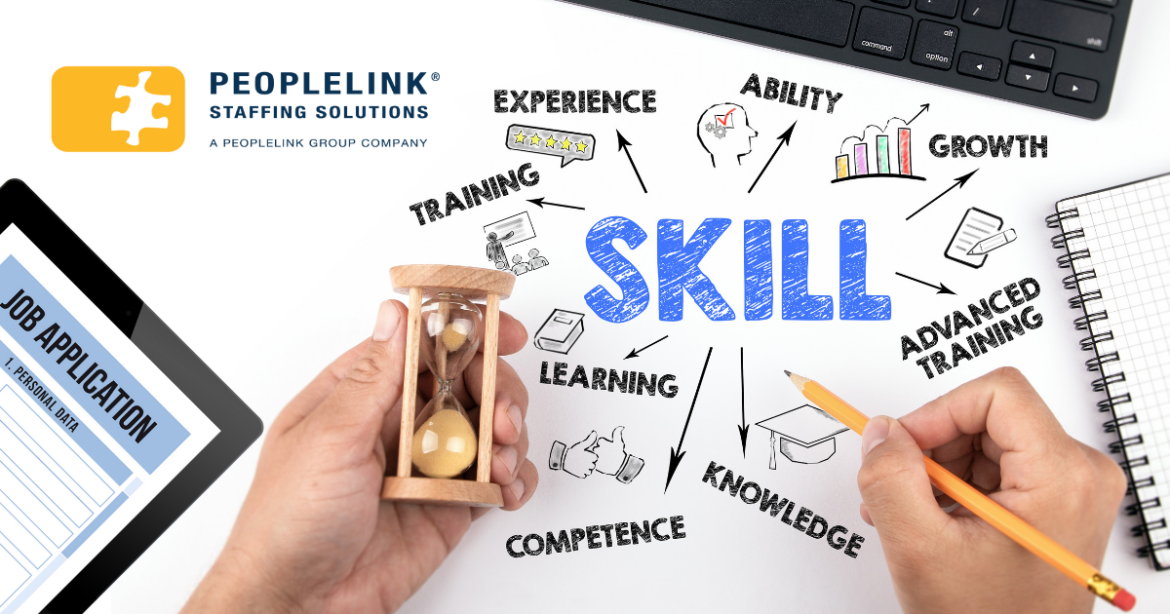
When peak season rolls in, light industrial companies know all too well the stakes: paper-thin margins, tight timelines, and the need to ramp up staffing quickly. Traditional hiring, which leans on degrees or years in the field, often overlooks qualified candidates and prolongs the process, especially when the real need is the ability to perform the core tasks from day one. That’s where skill-based hiring steps in, offering speed, precision, and a more resilient workforce.
A Short History: Skills Over Schooling
Skill-based hiring isn’t a new concept, but it’s gained significant traction in recent years. A 2024 survey found that 90% of companies report fewer hiring mistakes, and 94% say skill-based hires outperform those selected based on degrees, certifications, or experience. These numbers underscore the advantages of evaluating candidates by what they can do, not what’s on a diploma.
Nearly 65% of employers now use skills-based hiring for entry-level roles. It’s no longer a niche strategy but virtually reshaping how companies build their workforce.
Why It Matters in Light Industrial Peak Season
- Fast Hiring for Fast Turnarounds
Peak season demands agility. Whether it’s warehousing, assembly, or packaging, you need staff who can hit the ground running. Skill-based hiring uses practical assessments or validated competencies to evaluate candidate potential. By focusing directly on skills, companies can shorten screening time and bring in the right workers faster.
- Wider Talent Pool = Faster Fill
Light industrial roles don’t always require degrees, yet traditional job descriptions often include them as unnecessary hurdles. By focusing on relevant skills, you unlock a larger, more diverse reservoir of ready-to-work individuals. This formula works particularly well for ramping up quickly.
- Sharper Performance and Retention
People hired for real-world skills typically perform better and stick around longer. Workers who feel competent in their role usually have higher job satisfaction. That stability is vital during high-pressure peak seasons when turnover can pinch productivity.
Together, speed, access to talent, and stronger retention create stability, but peak season brings an added layer of unpredictability.
Planning Ahead in an Uncertain Market
Peak season rarely arrives in a predictable, straight line. Tariffs, supply chain disruptions, and fluctuating customer demand make workforce planning more complicated. In this volatile landscape, companies can’t afford to build hiring strategies that are rigid or slow-moving.
Skill-based hiring offers a solution. By focusing on proven competencies, it reduces mismatches and makes it easier for employers to adjust their workforce as conditions change. Instead of scrambling to match credentials with shifting needs, managers can focus on slotting in people who can do the work—whether demand doubles overnight or a production schedule suddenly shifts.
Putting Skill-Based Hiring Into Practice
Here’s how you can weave skill-first hiring into your peak-season staffing strategy:
- Define Core Competencies
Instead of just experience or education, pinpoint essential skills such as material handling, machine operation, and safety compliance, then build job descriptions around them.
- Leverage Practical Testing
Simple skills tests or on-site simulations like operating a pallet jack or following safety protocols give you concrete indicators of job readiness.
- Enable Flexible Staffing
With a skill-based model, roles can be filled on-demand with confidence the worker is capable from day one.
- Collaborate with Specialist Recruiters
Agencies that specialize in light industrial staffing can maintain pre-screened, skilled talent pools perfect for fast turnaround during peak demand.
Skills and Credentials: A Balanced Equation
One misconception about skill-based hiring is that it throws traditional qualifications out the window. That’s not the case. Degrees, certifications, and past experience still matter especially for specialized or safety-critical roles. Skill-first hiring balances the equation.
Think of it this way: credentials tell you where someone has been, but skills show you what they can do right now. During peak season, that immediacy matters. And when both are considered together, companies gain the best of both worlds, workers who are not only qualified on paper but also proven in practice.
When peak season hits, you need people who can perform at once, adapt quickly, and stay consistent. And by partnering with a staffing firm that pre-validates these skills, you save time, reduce risk, and maintain operational flow.
Take the Guesswork Out of Peak-Season Staffing
If your business needs to scale fast—with precision and reliability—let’s talk. At Peoplelink Staffing, we specialize in delivering light industrial talent that’s ready to work. Our skill-based approach ensures you get qualified, competent people exactly when you need them, so your peak season becomes your strongest season.





